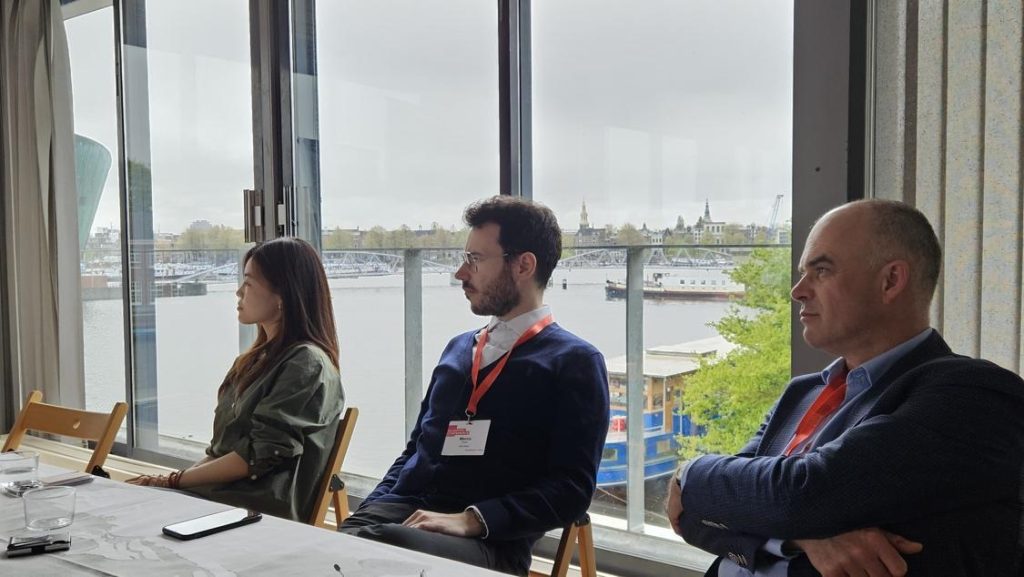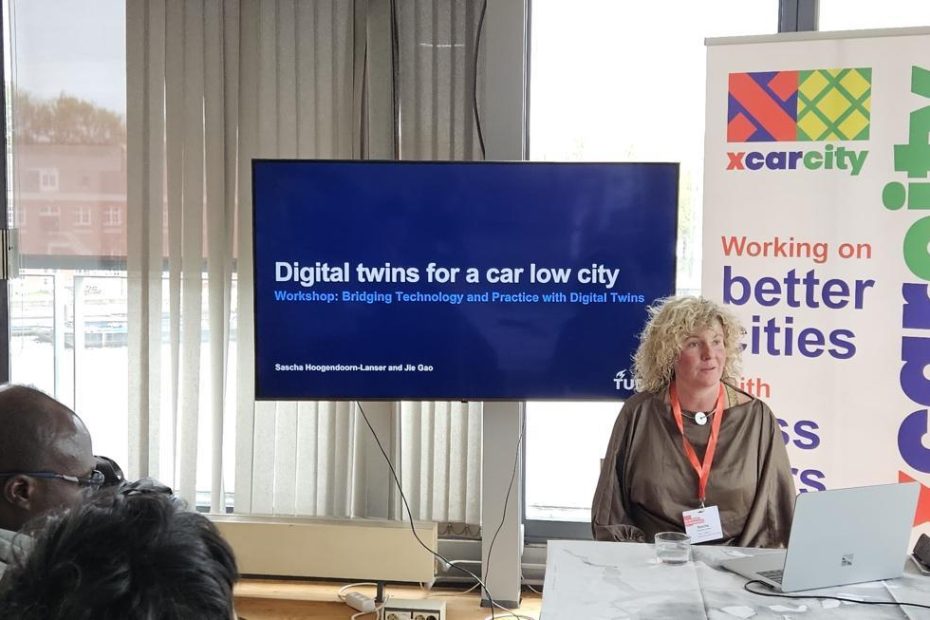By Yuxing Cheng
Photos: Tom Kuipers
The AMS Scientific Conference, held from April 23 – 25, 2024 in Amsterdam, brought together scientists, policymakers, and industry partners to discuss the latest solutions in sustainable urban development. The XCARCITY program team hosted a special session on Day 2 to share the insights from the project and discuss the opportunity of how the project connects to potential users.
The session started with an overview of the XCARCITY programme by Sascha Hoogendoorn-Lanser from the Mobility Innovation Center of Delft (MICD). Sascha first introduced the background of XCARCITY, the role of Digital Twins in the programme, and thediverse range of partners involved in the programme. . The session was preceded by a robust discussion on the programme objectives, including improving accessibility, livability, and equity, as well as indicators and interventions for designing low-car areas. The Outdoor Mobility Digital Twin developed by TU Delft was also introduced as a successful case study.
(Read further underneath the photograph)

In the second part of this session, participants discussed the synergies between data-driven Digital Twins and Urban Strategy, exchanging and acknowledging the different perspectives on digital twins. The audience (and/or potential uses) shared their expectations and concerns regarding the practical implementation of digital twins. Key areas where digital twins are expected to add value include:
- Testing and comparing the effect of different management policies to support the policy-making of the authority and the public.
- Providing traffic management policy suggestions.
- Gaining knowledge from collected data and visualizing it through Digital Twins.
Bart van Arem, Marco Rinaldi, Jie Gao, Yuxing Cheng (TU Delft), and Tom Kuipers (AMS) shared insights from the programme perspective and through a research lense:
- Data Quality: Ensuring the reliability of sensor data is the primary challenge for real-time management applications, as the, often, inconsistent data quality in real-world applications can impact the reliability of (prediction) models.
- Simulation Modules and Policy Development: Enhanced simulation capabilities are crucial for informing policy decisions and exploring alternative management strategies.
- Mobility Equality: Digital Twins have the potential to demonstrate benefits for all stakeholders, fostering mobility equality.
The session concluded with a discussion on potential collaborations, including opportunities for partnership with the City of Accra, Ghana, on the construction of their Bus Rapid Transit (BRT) system. These collaborations, focused on addressing mobility challenges and promoting sustainability, hold immense promise for fostering innovative solutions at a global scale.
